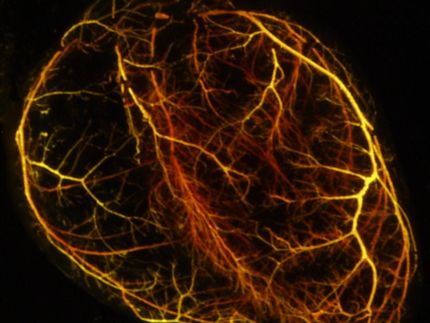New approach to tackle haemophilia
People suffering from haemophilia A have a genetic deficiency in clotting factor VIII which causes increased bleeding. In extreme cases, unstoppable bleeding may occur that can be life-threatening, in particular if the head or brain region is affected. Joint bleeds occur frequently that can cause permanent damage and even destruction of joints when left untreated.
Although effective treatment of the symptoms is available, there is no cure at present. Patients have to get lifelong infusions several times a week to compensate for the missing clotting factor. The costs of treatment for adults vary between €200,000 and €800,000 per year.
Genetically modified cells produce the clotting factor
An international research consortium is therefore seeking to develop a novel curative therapy for the disease. Their idea: The patients' own cells are genetically modified outside the body to produce the missing clotting factor using precursor cells of endothelial cells flowing in the bloodstream. Subsequently, these cells are transplanted back into the patient's body in a kind of "cell pouch".
Made of plastic, the pouches measure about 6 x 8 centimetres. They are implanted under the abdominal wall and after they have grown into the tissue, the genetically modified cells are filled into the pouches through a kind of valve. Because the pouches are linked to the blood circulation, the cells are capable of continuously producing the clotting factor and releasing it into the bloodstream for a long period of time. This should mitigate the disease's impact noticeably, increase the patients' quality of life and reduce the cost of therapy.
The research consortium
Under the name HemAcure, the new research consortium unites companies and scientific institutions from Germany, Italy, the UK and Canada. The project will be funded with around €5.5 million under the European Union's Horizon 2020 programme for the next three years. It is headed by Dr. Joris Braspenning, a member of the Department of Tissue Engineering and Regenerative Medicine at the University Hospital Würzburg.
"HemAcure brings together experts from science and industry in a powerful coalition," Joris Braspenning explains. Their knowledge and skills will allow cell-based medical products that comply with European regulations to be developed more quickly and efficiently. He believes that the project will not only benefit patients suffering from severe forms of haemophilia A, but also promote advanced therapies of the future.
Heike Walles, Head of the Department of Tissue Engineering and Regenerative Medicine, is also convinced of the research project's value as, in her words, "it ideally complements the department's value chain and the Translational Center for Regenerative Therapies in Würzburg.
The parties involved
Besides the Department of Tissue Engineering and Regenerative Medicine of the Würzburg University Hospital, the following institutions are involved in HemAcure: GABO:mi, a Munich-based enterprise that specialises in the management of EU-funded collaborative research projects, will be in charge of project management. The quality management will be monitored by IMS - Integrierte Management Systeme in Heppenheim, Germany. The company acts as a point of contact for international projects in the pharmaceutical and medical engineering sector.
The Würzburg University Hospital will be responsible for isolating the cells. Moreover, the entire process will be set up in line with GMP (Good Manufacturing Practice) guidelines for the production of pharmaceutical products.
The Università del Piemonte Orientale (Italy) will perform the gene correction of the patient cells. Scientists from Loughborough University (UK) will focus on the manufacturing process and safety testing. Sernova, a Canadian company, will supply the "cell pouches" for implanting the therapeutic cells.
Most read news
Other news from the department science

Get the life science industry in your inbox
By submitting this form you agree that LUMITOS AG will send you the newsletter(s) selected above by email. Your data will not be passed on to third parties. Your data will be stored and processed in accordance with our data protection regulations. LUMITOS may contact you by email for the purpose of advertising or market and opinion surveys. You can revoke your consent at any time without giving reasons to LUMITOS AG, Ernst-Augustin-Str. 2, 12489 Berlin, Germany or by e-mail at revoke@lumitos.com with effect for the future. In addition, each email contains a link to unsubscribe from the corresponding newsletter.





















































